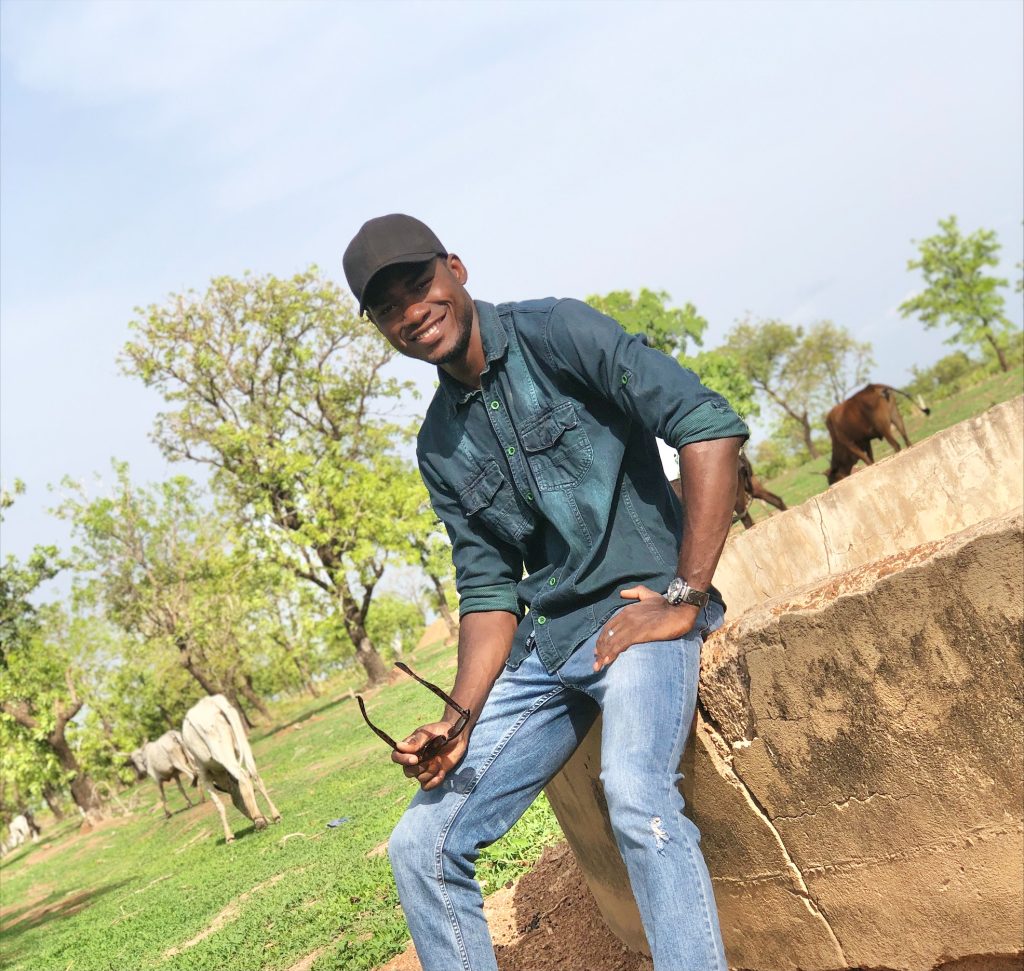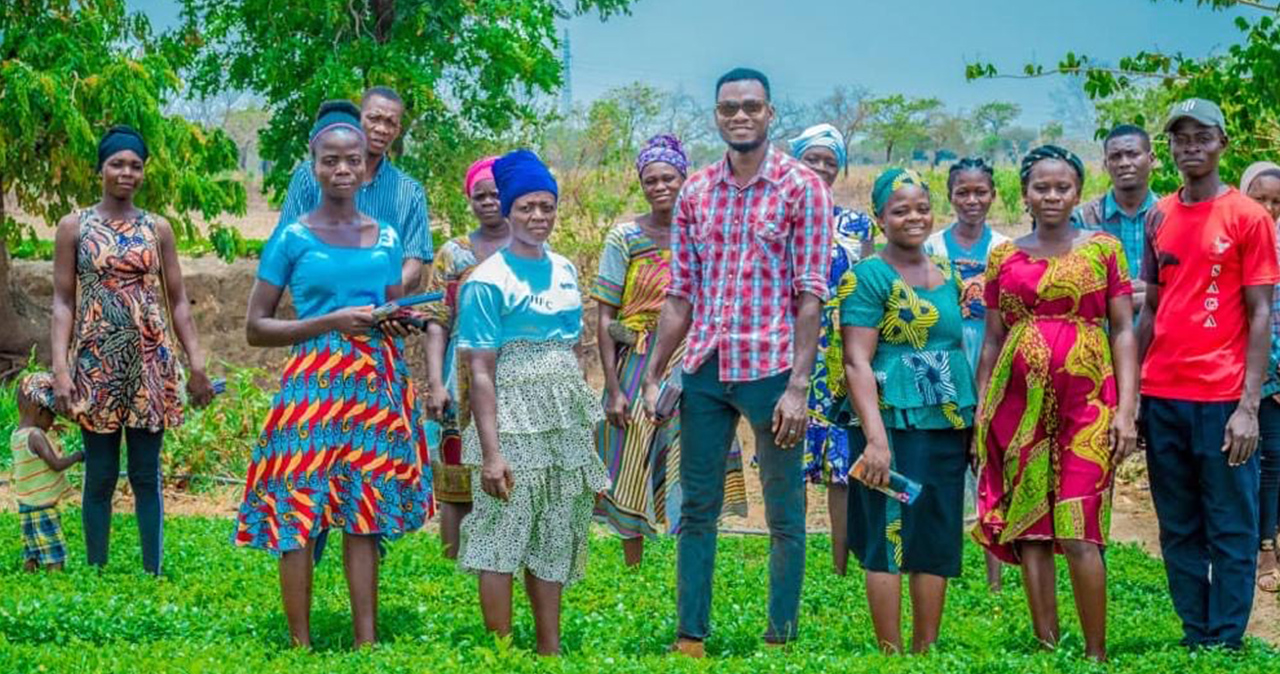Yahaya Alhassan (Class of 2020, Ghana) has long known the challenges of farming in a region with an intense dry season. Yahaya grew up in Tamale city, the capital of the northern region of Ghana, where 60% of livestock is produced. In addition to teaching Arabic, his father worked farmland and kept sheep and goats. After graduating from high school Yahaya was admitted to University for Development Studies in northern Ghana. After attending for one year, he returned to Tamale and began a business producing flour from corn. It was at that time that he learned about EARTH. “I saw how the education is practical, and that is very different from the education in Ghana.” Today, almost 10 years later, Yahaya is running his own farm business, a testament to his dedication to his community and to all he learned during his time at EARTH.
Yahaya’s farm cultivates widely used tomatoes, peppers, and other vegetable crops in his region. More recently they began raising cattle. The business now employs eight permanent staff and brings on additional temporary staff during planting and harvesting time. The farms are in four locations and each one is about 4 acres. Given the length of the region’s dry season, seven months in which cultivation traditionally stops, Yahaya knew he had to implement some sort of irrigation system to be successful. In 2023, Yahaya received an entrepreneurial grant for EARTH graduates sponsored by the Globe Foundation, which aided him in implementing the irrigation system he needed.
“In the dry season the staples are based on maize, so we farm maize during the rainy season and add crops like yam and casava as we can. During the dry season the food is from the produce saved from the rainy season, most of it dried products. Most of our dishes are tomato based, and the tomato market is fully taken over by imports. We are trying to fill that gap with fresh products. Small farm production isn’t scaled in my country, and we want to change that. We designed systems to be able cultivate in the dry season, when the prices for vegetables are higher. Now we are supplying restaurants and businesses with vegetables, fruits, and meat.”

Yahaya has learned that in addition to dealing with climate issues, a myriad of challenges face his business and business like it in Ghana. Finding financing is very difficult as banks require a certain level of collateral and interest is high. As he sees it, agriculture in places such as the United States is fifty years ahead of what is happening in his country. During rainy season people struggle to find basic equipment such as sprayers, tractors, and harvesters, forcing them to rely solely on physical labor. “You can’t grow large scale in these conditions. Only a few farms are doing commercial level production due to a lack of funding and investment.” Yahaya credits his EARTH education in helping him have the technical and practical tools to face these challenges.
“One of the things that convinced me to attend EARTH is the whole idea, the way the school is designed, you have the liberty to experiment and do practical things. I believe EARTH students absorb a lot and can do well in agribusiness because we learn every aspect. The Entrepreneurial Project prepared me in so many ways. I learned about accounting, finance, valuation, the whole practical nature of running a business. Even now I use a template designed at EARTH to help me manage my business.”
In 2022, Yahaya was a recipient of the Mastercard Foundation – EARTH University Fellowship program, allowing him to teach irrigation management at the local technical university. “I used my farm to demonstrate and teach – our farm provided a kind of experimental opportunity for the students. It has been one of the highlights of my career so far.”
Yahaya reflected on his time at EARTH. “Aside from the practical knowledge, I think what helped me the most is the ability to communicate, to face every situation and solve problems by talking to people first. In every course we had to collaborate, talk with people, and I believe this has been critical to me in running a successful business. It’s one of the things I look back on and really appreciate.”
Almost 10 years ago, in his entrance interview at EARTH, Yahaya said, “I want to continue and expand my business. Back home they still use outdated forms of agriculture, and I have already been seeing here how I can change that. I want to educate and provide employment for them.” We are proud of Yahaya and all he has accomplished, meeting a goal he had even before coming to study at EARTH. We applaud graduates like Yahaya and all they are doing to meet the challenges of food production in these pressing times.
